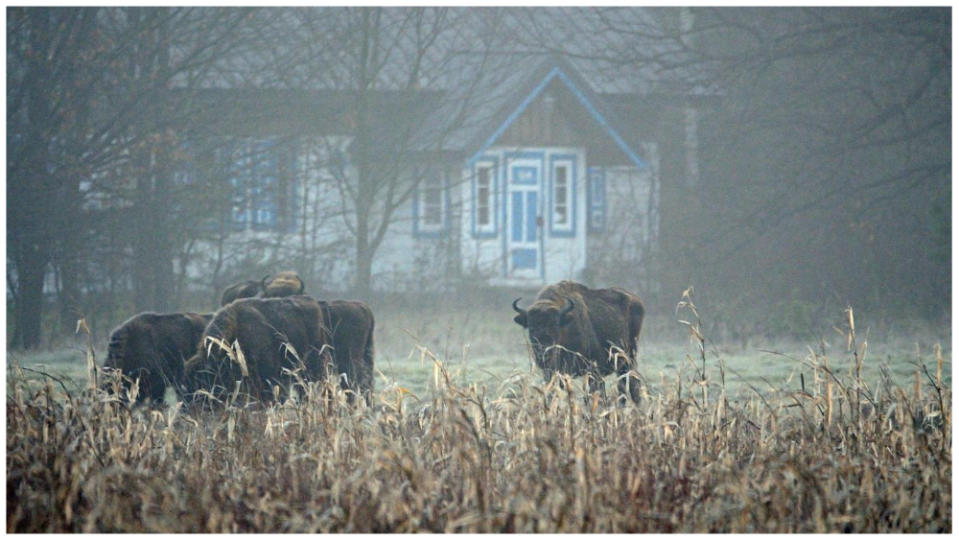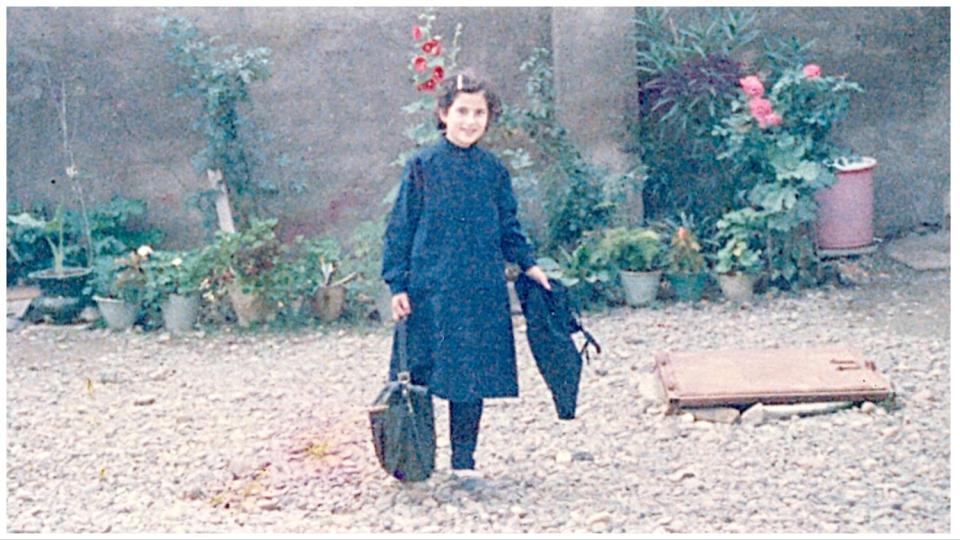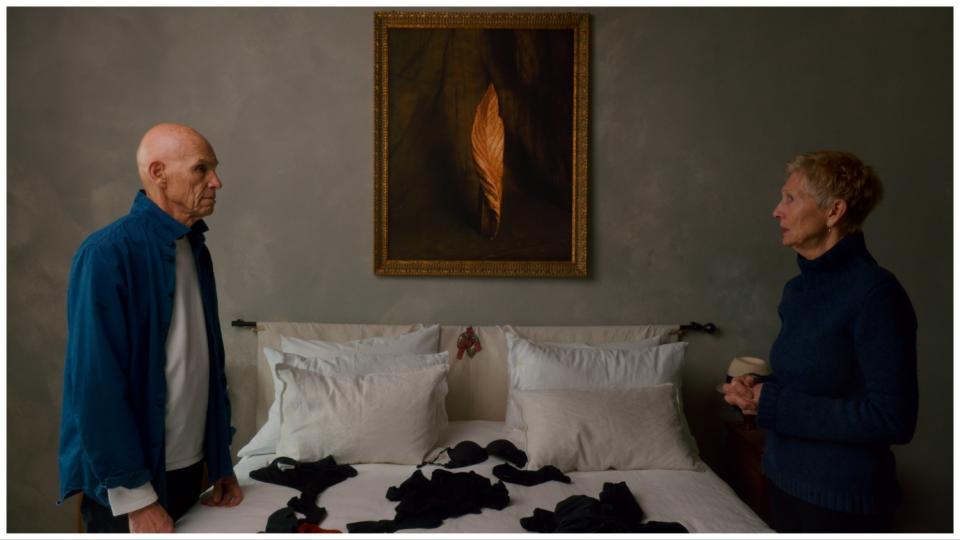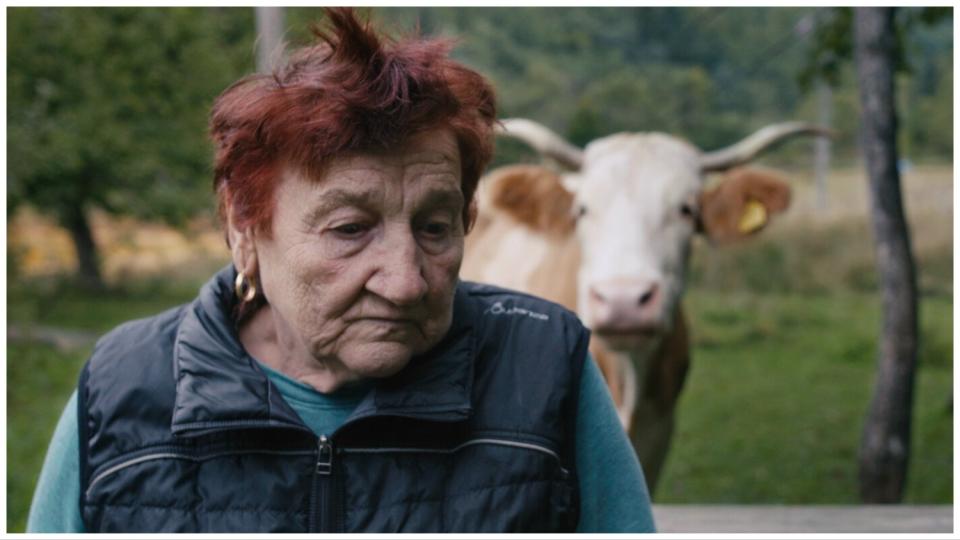Sundance Winner ‘A New Kind of Wilderness’ Among Competition Lineup at Thessaloniki Documentary Festival (EXCLUSIVE)

The 26th Thessaloniki Intl. Documentary Festival has revealed the lineup of the International Competition section, which includes “A New Kind of Wilderness,” winner of the Grand Jury Prize in the World Cinema – Documentary section of Sundance Film Festival. Thessaloniki Documentary Festival runs from March 7-17.
The films participating in the section have their world, international or European premiere at the festival.
More from Variety
The films compete for a number of awards, accompanied by monetary prizes. Among them are the Golden Alexander award, accompanied by a 12,000 euro prize, and the Silver Alexander award, accompanied by 5,000 euros.
The Thessaloniki Documentary Festival is an Oscars qualifying festival and the film that wins the Golden Alexander award will automatically be eligible to submit for Academy Awards consideration in the documentary feature category.
The documentaries that will participate in the International Competition section are as follows. (Descriptions supplied by the festival).
“A New Kind of Wilderness”
Silje Evensmo Jacobsen, Norway
European premiere
“A New Kind of Wilderness,” which is directed by Silje Evensmo Jacobsen, won the Grand Jury Prize in the World Cinema – Documentary section of Sundance Film Festival. Evensmo Jacobsen previously helmed “Faith Can Move Mountains,” which was in the Newcomers Competition section of Thessaloniki Documentary Film Festival in 2021.
Away from the bustle of the world, in the heart of the dark Norwegian woods, Maria and Nik are raising their four children in complete harmony with nature, seeking a more fulfilling existence at a more relaxed pace. However, Maria’s unexpected passing will upend the family’s tranquillity and expose them to new challenges, the biggest of which includes their unavoidable return to “civilization.”
This documentary transforms the viewer into members of the family, making us privy to the tenderness, love and sorrow that this family experiences within its core. Through these new challenges and the idyllic moments of the past, captured by the lens of Maria’s camera, the film delicately and insightfully explores the ties that bind and how to navigate loss, along with our precarious relationship with nature and our responsibility to the planet, in a film that is both disarmingly simple yet extremely complex at the same time.

“And So It Begins”
Ramona S. Diaz, U.S.-Philippines
International premiere
Amidst the traditional pomp and circumstance of Filipino elections, a quirky people’s movement rises to defend the nation against deepening threats to truth and democracy. In a collective act of joy as a form of resistance, hope flickers against the backdrop of increasing autocracy. The film premiered at this year’s Sundance.
“Forest”
Lidia Duda, Poland-Czech Republic
World premiere
Asia and Marek bought an old house near the eastern border of Poland, in the Białowieża Forest, the oldest forest in Europe. This is their own paradise – a place where their children can grow up safely, away from the problems of today’s world. For Marysia, Ignacy and Franek the forest is their second home, tamed and trusted. Yet one day, their forest changes as strangers and others show up. Refugees who are unwelcome in both Poland and Belarus. The whole family helps the refugees, even though it’s against Polish law. But how can you not help another person in need? The children’s world changes radically. They no longer play a knight and a princess, but a refugee and border guards. Big politics came knocking on their door and nothing was the same anymore.
“Forest” picked up the New Visions Award for the most promising European project at Ji.hlava Film Festival.

“Johatsu – Into Thin Air”
Andreas Hartmann and Arata Mori, Germany-Japan
World premiere
In Japan, people vanish without a trace with the support of so-called “night moving” companies, which help people to disappear from their current life. Known as the Johatsu, or “the evaporated,” these people leave everything behind to start a new life somewhere else.
“My Stolen Planet”
Farahnaz Sharifi, Germany-Iran
International premiere
“My Stolen Planet” tells the story of Farah, a woman forced to emigrate “inwards,” into her own home to be free. During the Islamic revolution in Iran in 1979, she captures moments of joy and defiance in her daily life, navigating the contrast between domestic freedom and external oppression.
Simultaneously, she collects 8mm archives from people she doesn’t know. Relying on others’ recordings, she gains a new perspective on losing memories. Her connection with Leyla, an Iranian professor who left Iran during the revolution, adds a name and a story to one of her archive’s faces.
Farah’s mother, suffering from Alzheimer’s, motivates her to fight against forgetting.
In the fall of 2022, the Women, Life, Freedom uprising became a turning point in Farah’s life, as well as in the lives of many others in Iran. This is a homemade history.
“My Stolen Planet” has its world premiere in the Panorama Dokumente section of Berlin Film Festival.

“Nocturnes”
Anupama Srinivasan and Anirban Dutta, India-U.S.
International premiere
In the dense forests of the Eastern Himalayas, moths are whispering something to us. In the dark of night, two curious observers shine a light on this secret universe.
The film world premiered at the Sundance Film Festival in the World Cinema – Documentary section.
Dutta and Srinivasan’s documentary “Flickering Lights” won the cinematography award at IDFA last year.
“Pol Pot Dancing”
Enrique Sánchez Lansch, Germany-Norway
World premiere
A star dancer at the Cambodian royal court lovingly raises her husband’s little brother as her own son. Decades later, as a forced laborer under the oppressive rule of Khmer Rouge, she discovers that her foster son is none other than Pol Pot.
The mass purges of the regime (spanning from 1975 to 1979 – Pol Pot annihilated 25% of Cambodia’s population) are intertwined with painful memories of the relatives of the bloodthirsty dictator, who today stage an impressive dance performance depicting an encounter between the leader of the Khmer Rouge and his foster mother.
In this documentary, valuable archive material is seamlessly combined with the images of the dancers, the traditional costumes, and the descriptions of the significance behind this cultural expression of the Cambodian people, offering a flawless outcome, one that is profoundly melancholic, beautiful and yet at the same time tragic. Art serves as pain relief for the greatest open wounds of history.
Sánchez Lansch films include 2004’s “Rhythm Is It!,” directed with Thomas Grube, which played at Tribeca Film Festival, and 2021’s “Inside the Uffizi,” directed with Corinna Belz.

“Stray Bodies”
Elina Psykou, Greece-Switzerland-Italy-Bulgaria
World premiere
Robin is pregnant but doesn’t want to be a mother. Katerina and Gaia are single but want a child. Kiki suffers from an incurable disease and wants her life to end with dignity. The procedure they hope to get access to – abortion, IVF and euthanasia – is available and legal in neighboring countries but not theirs. Therefore, they resort to so-called medical tourism. By meeting with those who defend the rights for bodily autonomy and many of their opponents, “Stray Bodies” takes the audience on a road trip through Europe, where life and death lurk around every corner.
Psykou’s first feature, “The Eternal Return of Antonis Paraskevas,” won the Works in Progress Award at the Karlovy Vary Film Festival in 2012 and premiered in the Forum section of the Berlinale in 2013. She was named one of the “10 European Directors to Watch” in the same year. Her second feature, “Son of Sofia,” won the Works in Progress Award at Les Arcs in 2015, and competed at Tribeca Film Festival in 2017, and won the Best International Narrative Feature Award.
“Two Strangers Trying Not to Kill Each Other”
Jacob Perlmutter and Manon Ouimet, U.K.-Denmark
World premiere
When unrecognized artist Maggie Barrett, 75, breaks her femur, her husband Joel Meyerowitz, 84, a world-famous photographer, busier than ever, becomes her carer. But as her resentment of his success surfaces, the couple commit to equanimity in the face of the existential weight of mortality.
“Unclaimed”
Marianna Economou, Greece
World premiere
An accidental discovery in an Athenian hospital reveals a personal and collective trauma about hundreds of patients who died from tuberculosis between 1945 and 1975 and were buried unnamed in mass graves on the hospital grounds. Eighty years later, their controversial story comes to light through their personal belongings and the search for living relatives.
Economou was the winner of the FIPRESCI prize for a Greek film at the Thessaloniki Documentary Film Festival in 2019 for “When Tomatoes Met Wagner.”

“Unclickable”
Babis Makridis, Greece
World premiere
Welcome to the murky world of digital ad fraud, organized crime’s biggest source of income after drug trafficking. A former industry executive pulls the curtain to expose how it’s done, who the victims are, and what role Google and Facebook play in the game.
Makridis’ credits include “L,” which premiered in the World Cinema – Dramatic section at the Sundance Film Festival in 2012, and “Pity,” which also played at Sundance in the same section, in 2018. “Birds (or How to Be One)” appeared in 2020 at Rotterdam and Thessaloniki Documentary Film Festival.
“Where We Used to Sleep”
Matthäus Wörle, Germany
World premiere
Long ago, Geamăna was a Romanian village in the Apuseni Mountains, home to about 1,000 people. Today, only the church spire rises from the poisonous mud of a neighboring copper mine. Almost all the houses have sunk and their inhabitants have fled. On the edge of the past, Valeria Praţa strives for her present – and is threatened by the future.
Best of Variety
Sign up for Variety’s Newsletter. For the latest news, follow us on Facebook, Twitter, and Instagram.

 Yahoo News
Yahoo News 
